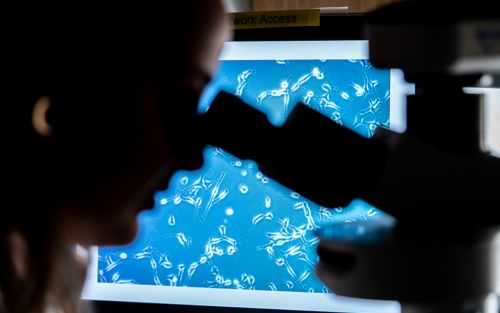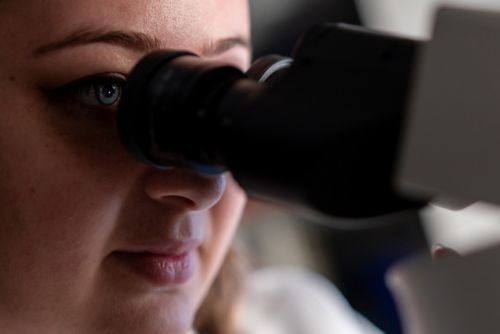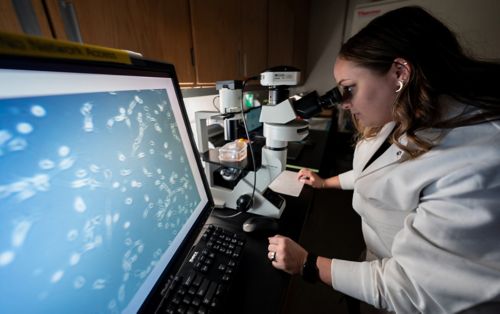St. Jude Family of Websites
Explore our cutting edge research, world-class patient care, career opportunities and more.
St. Jude Children's Research Hospital Home

- Fundraising
St. Jude Family of Websites
Explore our cutting edge research, world-class patient care, career opportunities and more.
St. Jude Children's Research Hospital Home

- Fundraising
Puneet Bagga Lab
Innovating imaging methodologies to understand metabolic pathways responsible for cancer and neurodevelopmental disorders
About the Puneet Bagga Lab
Our lab takes an innovative approach with our use of cutting-edge imaging methodologies like magnetic resonance spectroscopy and molecular magnetic resonance imaging to better understand the metabolic pathways responsible for cancer and some neurological disorders. Our robust research program strives to provide valuable, clinically translatable methods to assist clinicians in making more informed decisions about treating certain kinds of cancer and evaluating the progress and success of those treatments.

Our research summary
There is an increasing need to use metabolic imaging techniques to provide insights into tumors and cancer that are not otherwise readily available to clinicians. Therefore, the work in our laboratory focuses on exploring and establishing non-invasive imaging approaches to determine the metabolic pathways at play in many forms of cancer, with the ultimate goal of developing clinically translatable methods to help patients.
Our metabolic imaging approaches use non-radioactive, stable isotopes, requiring us to rely heavily on modalities such as magnetic resonance imaging and magnetic resonance spectroscopy in combination with these stable isotope substrates.

Our research encompasses three interconnected approaches, the first of which involves evaluating the abnormal metabolic fluxes in patient-derived cancer cells. This line of research inquiry allows us to determine the flux rates in metabolic pathways, where a greater understanding of these rates may point toward potential diagnostic approaches and therapeutically targetable vulnerabilities in those cancers.
We then take our findings about cancer cells’ metabolic fluxes and develop in vivo preclinical models of these cancers. Using administration of stable isotope tracers such as glucose, glutamine and acetate, among others, our team uses dynamic magnetic resonance spectroscopy and LC-MS techniques to identify the upregulated metabolic pathways in cancer to home in on potential targets for therapy.

Our third area of research involves developing clinically translatable methods to image some or all of these metabolic pathways in patients with cancer and tissues involved in other kinds of disease. For example, our lab collaborates with investigators in the Center for Experimental Neurotherapeutics to study the oxidative phosphorylation in skeletal muscle of patients with spinal muscular atrophy, Friedreich's ataxia and muscular dystrophies.
All of our research aims to improve imaging modalities to improve our understanding of pathways that lead to cancer and neurodevelopmental disorders in children.
Publications
Contact us
Puneet Bagga, PhD
Radiology
MS 220, Room I3104
St. Jude Children’s Research Hospital

Memphis, TN, 38105-3678 USA GET DIRECTIONS